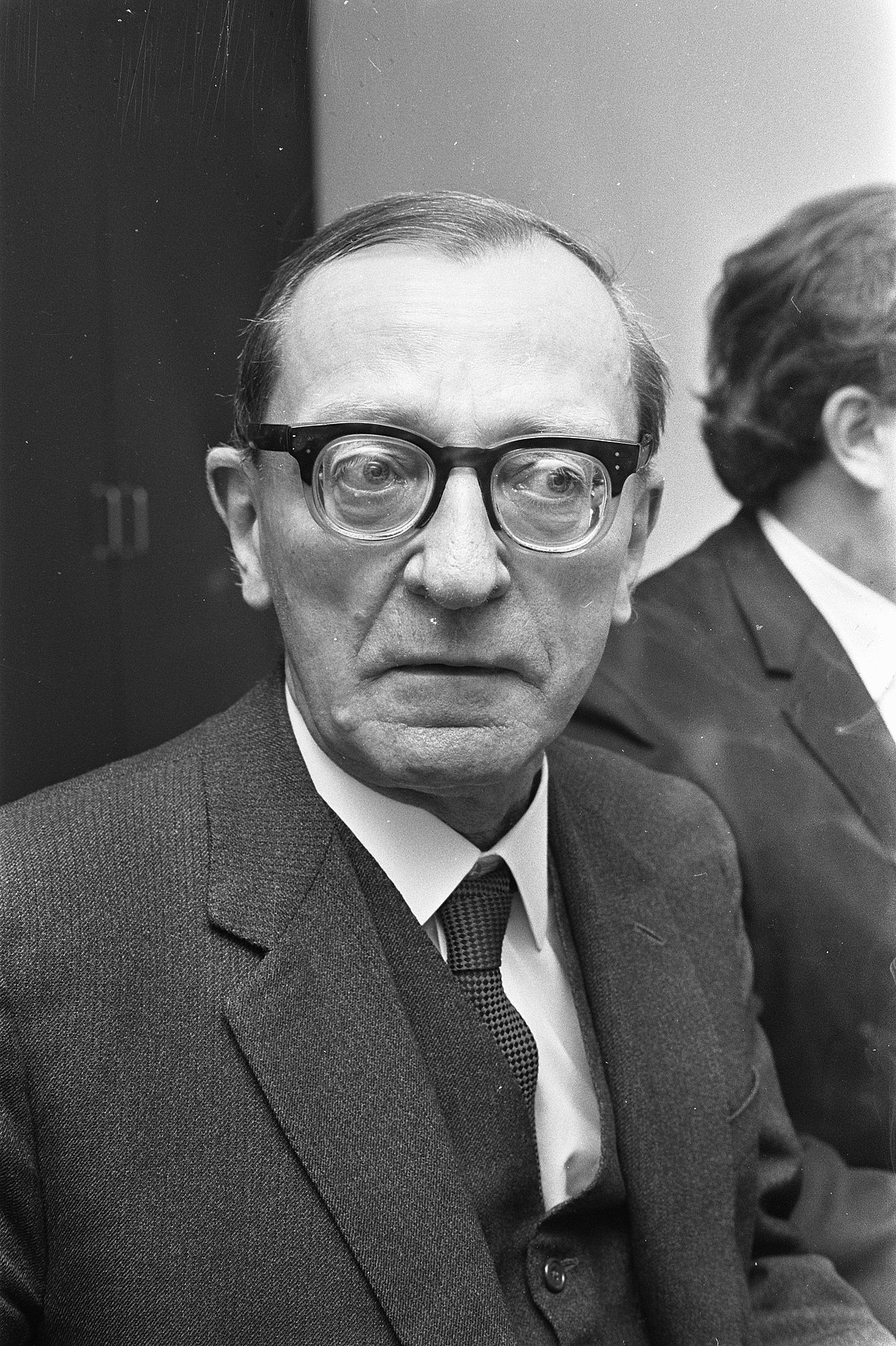 author
authorR.C. Zaehner
Robert Charles Zaehner (1913–1974) was a British academic whose field of study were Eastern religions. He understood the original language of many sacred texts, e.g., Hindu (Sanskrit), Buddhist (Pali), and Islamic (Arabic). At Oxford University, his first writings were on the Zoroastrian religion and its texts. Starting in World War II, he served as an intelligence officer in Iran.
Appointed Spalding Professor at Oxford in 1952, his books addressed such subjects as mystical experience (articulating a widely cited typology), Hinduism, comparative religion, Christianity and other religions, and ethics. He translated the Bhagavad-Gita, providing an extensive commentary based on Hindu tradition and sources. His last books addressed similar popular culture issues, leading to his talks on the BBC. He published under the name R. C. Zaehner.
Born on 8 April 1913 in Sevenoaks, Kent, he was the son of Swiss–German immigrants to England. Zaehner "was bilingual in French and English from early childhood. He remained an excellent linguist all his life." Educated at the nearby Tonbridge School, he was admitted to Christ Church, Oxford, where he studied Greek, Latin, and ancient Persian including Avestan, gaining first-class honors in Oriental Languages.
During 1936–37 he studied Pahlavi, another ancient Iranian language, with Sir Harold Bailey at Cambridge University. Thereafter Zaehner held Prof. Bailey in high esteem. He then began work on his book Zurvan, a Zoroastrian Dilemma, a study of the pre-Islamic religion of Iran. Zaehner enjoyed "a prodigious gift for languages." He later acquired a reading knowledge of Sanskrit (for Hindu scriptures), Pali (for Buddhist), and Arabic (for Islamic).
In 1939 he taught as a research lecturer at Christ Church, Oxford. During this period, he read the French poet Arthur Rimbaud and the Sufi poet of Iran, Rumi, and studied the Hindu Upanishads. Zaehner came then to adopt a personal brand of "nature mysticism." Yet his spiritual progression led him a few years later to convert to Christianity, becoming a Roman Catholic while stationed in Iran.
During World War II starting in 1943, he served as a British intelligence officer at their Embassy in Tehran. Often he was stationed in the field among the mountain tribes of northern Iran. After the war, he also performed a more diplomatic role at the Tehran embassy. Decades later, another British intelligence officer, Peter Wright, described his activities:
"I studied Zaehner's Personal File. He was responsible for MI6 counterintelligence in Persia during the war. It was difficult and dangerous work. The railway lines into Russia, carrying vital military supplies, were key targets for German sabotage. Zaehner was perfectly equipped for the job, speaking the local dialects fluently, and much of his time was spent undercover, operating in the murky and cutthroat world of counter-sabotage.
By the end of the war, his task was even more fraught. The Russians themselves were trying to gain control of the railway, and Zaehner had to work behind Russian lines, continuously at risk of betrayal and murder by pro-German or pro-Russian... ." Zaehner continued in Iran until 1947 as a press attaché in the British Embassy and an MI6 officer. He then resumed his academic career at Oxford, researching Zoroastrianism.
In 1949, however, he was relocated to Malta, where he trained anti-Communist Albanians. By 1950 he had secured an Oxford appointment as a lecturer in Persian literature. Again in 1951–1952, he returned to Iran for government service. Prof. Nancy Lambton, who had run British propaganda in Iran during the war, recommended him for the Embassy position. Journalist Christopher de Bellaigue describes Robin Zaehner as "a born networker who knew everyone who mattered in Tehran" with a taste for gin and opium.
Best author’s book



Written books
1



















